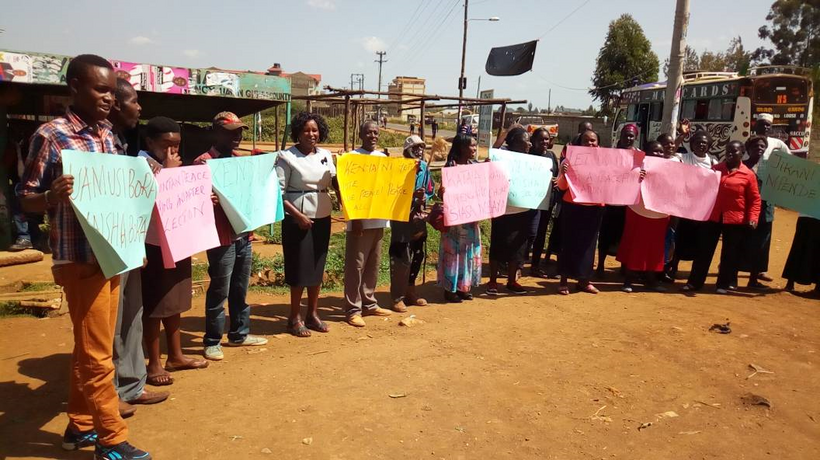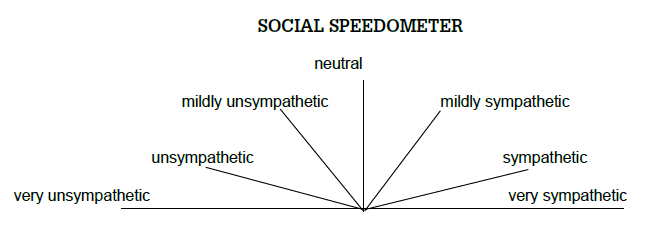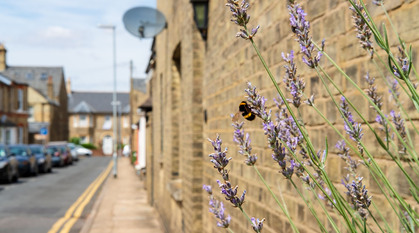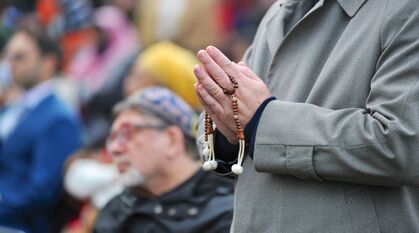6 things we can learn from African peace activists about movement building
Tobias Wellner shares six things he has learnt from African colleagues about building and sustaining movements for change.

What do we need to build a movement for social change? It's a question we should all ask ourselves if we are going to create the kind of society we wish to see. It's also something that African colleagues consider on a daily basis as they support local communities to take action for social change.
Turning the Tide (TTT) East Africa is a project set up by Quakers in Kenya and Britain that connects both social justice campaigning and peacebuilding. It currently works in Kenya, Rwanda and Burundi to equip and support communities to address underlying causes of violence.
Turning the Tide activists are well connected with the communities they work with and sometimes support mediation between different conflict parties, including recently around elections in Kenya.
Over the years, TTT East Africa has supported some very different campaigns. This is because local communities choose what they want to work on, based on their analysis of what is causing conflicts. Campaigners often work in very difficult conditions and there is a lot that we in Britain can learn from our African colleagues. With this in mind, I asked them: “What do you need to build a movement for social change?" Here's what they said:
1. Your heart has to be in it
The first thing that my African colleagues mentioned was that your heart has to be with it.
TTT activists in East Africa are not all Quakers. They come from different ethnic groups and religions, but they all agree on this: change starts with yourself. It's important to challenge yourself before you challenge others. Having your heart in this work helps with commitment and assists you with the inevitable challenges which emerge.
The Turning the Tide training looks at power, violence and change. One woman spoke movingly about how understanding violence better had changed her behaviour towards a family member.
2. Analyse the context you work in
The second thing they mentioned was the importance of analysing the context you work in.
Who is your ally? Who is against you and why? What might the risks be? Activists often use the social speedometer with campaigners. It is a TTT tool that has really helped people plan their campaigns.

After you map all the actors (groups or individuals with an interest in the outcome), you put them on the graph and discuss whether the actor is sympathetic to your campaign or not. Then you can choose which groups you need to target first.
'Understand before you act' is one of their main principles.
3. Work as part of a team
This sounds like a standard thing, but it is really important to spend time identifying, appreciating and using the different skills of each team member.
Every team member needs to feel like they are making a contribution. The stronger the team, the stronger the campaign!
4. Urge others to act
This is about following up with action plans.
A campaign or movement is frequently made up of a core group of people. They cannot act alone, but it's often this core that urges others to act. Being confident in what you're asking for and following through with plans can help others to join.
5. Start small and work your way up
Solve small issues first and then work towards the bigger problem. Break your campaign goal into smaller pieces, making it more achievable.
And don't forget to embrace, celebrate and reflect on your campaign victories as you go along. This will keep the movement's moral up!
6. The plan is to change the plan
Strategic planning is a huge part of the work of TTT East Africa. But campaigners need to remain highly flexible. Contexts are constantly changing and they may need to re-adjust their plans to successfully meet new circumstances. It is important that the whole team is prepared for this flexibility.
My personal favourite? It's not on this list but it's present every day as I work with my African colleagues – inspire others to peace.


